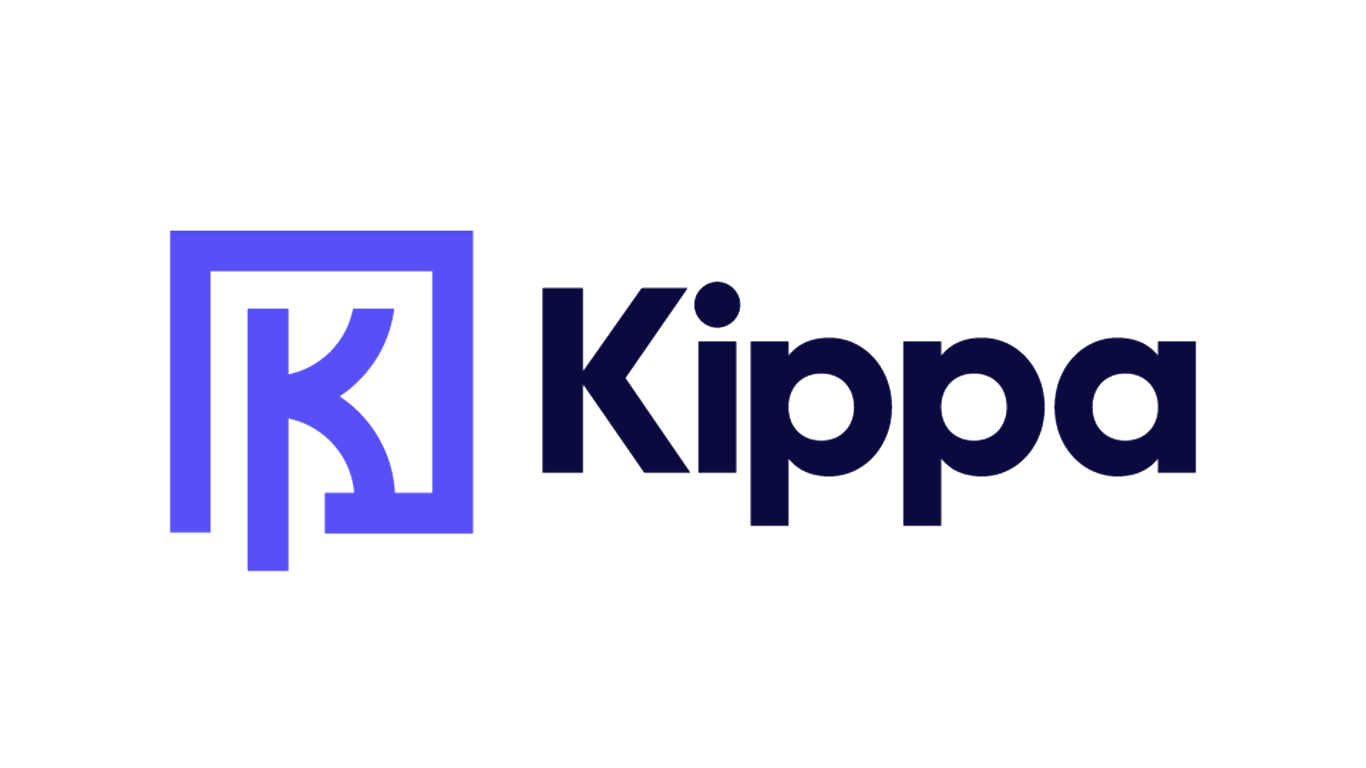Published

Duncan Cooper
Senior Market Strategist & Trading Mentor at ACY
- 01:00 am

Deployment of AI platform to bolster auto loans
Leading global AI-powered credit decision platform provider Scienaptic AI announced today that Arkansas Federal Credit Union has chosen its AI-based underwriting technology to improve the credit union’s loan decisioning process and make advanced decisions for community members.
Arkansas Federal, which has been serving Arkansans since 1956, provides a full suite of financial products and services to more than 130,000 members. As a member-owned credit union, Arkansas Federal’s purpose is to make a difference in the lives of its employees, members and the communities it serves. With Scienaptic AI’s credit underwriting platform, Arkansas Federal will be able to increase credit access for its community through instant loan decisioning and higher approvals.
“At Arkansas Federal, we are focused on ensuring access to credit to our members so that they can achieve their financial goals, whether that’s buying their first home or refinancing their debt so that they can have peace of mind,” said Terry Vick, executive vice president and chief lending officer at Arkansas Federal. “With Scienaptic's AI technology, our loan decisioning will become automated, sharper and faster, enabling us to provide loans to members whose credit scores are unfairly low while enhancing everyone’s ability to get fair rates backed by local service.”
“Our cutting-edge AI-enabled credit underwriting technology will help Arkansas Federal increase approval rates and lend with more confidence. Our platform helps to empower both members and credit unions by increasing credit access and minimizing risk while increasing the number of beneficiaries,” said Pankaj Jain, President of Scienaptic. “We are excited to be part of this journey to bring empowerment and growth opportunities to the state of Arkansas.”
Related News
- 09:00 am

GreenBox POS (NASDAQ: GBOX) ("GreenBox" or the "Company"), an emerging and rapidly growing Fintech company announced today the appointment of Adele Hogan, a seasoned transactional lawyer, to its Board of Directors. Hogan will replace Carl Williams who is transitioning away from his Director role.
Adele Hogan has over 30 years’ experience as a transactional lawyer with demonstrated leadership skills in over $200 billion of securities, mergers, contracts and deals closed. She is currently Partner and Co-Chair of the Corporate, Mergers & Securities Practice Group at Lucosky Brookman, leading mergers and capital markets transactions, including IPOs, SPACs, de-SPACs, corporate side of bankruptcies, securities, and derivatives. Previously she was Partner at Hogan Law Associates managing all aspects of complex mergers, securities offerings, derivatives, and financing deals. At Deutsche Bank she led work related to mergers, capital markets, risk, governance, and regulatory matters across business and operational lines, including internal audit, risk, operations (capital and liquidity), investigations and investment banking matters. She is also a Director for Jupiter Wellness Acquisition Corp. Hogan keeps an on-going commitment to the legal and financial education of others, teaching, chairing, and speaking at PLI, Board Associations, and Fordham University, and judging Transactional Law Competitions at Cornell Law School. She holds a Juris Doctorate from Cornell University Law School.
“Adele is a highly respected, purpose-driven leader who has a proven, long-term track record of success throughout her legal career,” said Ben Errez, Chairman of the Board of GreenBox. “She is a partner at our securities law firm and has been material to recent acquisitions and securities compliance successes, and will be an important contributor to any M&A and dividend plans. She will be an affiliated board member, bringing the balance in the Board to three affiliated and four independent members. We welcome Adele to the Board and look forward to her contributions as we continue to strengthen and scale our business by integrating and leveraging our recent acquisitions into becoming a truly comprehensive global payment solutions leader.”
Hogan commented, “GreenBox has reached a key inflection point in its evolution, and I am honored to offer my insight as the Company continues its growth trajectory to meet the increasing demands for its cutting edge blockchain ledger tokenized payment solutions and the addition of new products and customers through recent acquisitions. I look forward to working alongside Ben and the rest of the board to drive the future of financial technology.”
Related News
- 08:00 am

Fintech RITMO has successfully closed a $200 million debt funding round led by i80 Group and Avellinia Capital, making it one of the largest funding rounds of any e-commerce finance business in Europe and Latin America (LATAM).
The debt financing was provided by i80 Group, a US-based leading provider of capital to breakthrough technology companies that has committed over $1 billion in credit to fintech and proptech firms and by Avellinia Capital, a leading European provider of tailor-made capital solutions for fast-growing disruptors across fintech lending, e-commerce and mobility.
To date, RITMO has raised $225 million in debt and equity funding in its first year of operations with support from serial entrepreneurs and institutional investors.
The funding will be used to support RITMO's rapid growth, ensuring capital is available to fuel the funding of over 2,000 e-commerce clients over the next 18 months in key European and LATAM countries. The funding will also assist with RITMO’s global expansion strategy and plans to launch in new markets through agreements with key players in the payments and e-commerce sectors.
Founded in 2021 by Raimundo Burguera, Iñaki Mediavilla, Iván Peña and Prageet Sharma, RITMO is a fintech platform that provides working capital financing and an automated Buy Now, Pay Later (BNPL) payment system for e-commerce businesses to overcome supply chain challenges, ensuring they can better manage cash flow and scale faster. Through this range of products, RITMO is embedded in the day to day operations of its clients, offering financing for growth and enabling merchants to extend payment terms with suppliers.
In the past seven months, RITMO has achieved a 12x growth rate with more than 600 loans made in five countries across two continents.
As part of its growth and international expansion strategy, RITMO has secured agreements with major players in the payments and e-commerce sector, with access to more than 150,000 merchants. In March 2022, RITMO partnered with global fintech and international payments service provider, WorldFirst, to launch a £100 million growth package for fast-growing e-commerce businesses in the UK and Europe.
Raimundo Burguera, CEO and Co-Founder of RITMO, said: “In less than a year of operations, I am proud to say that RITMO has closed one of the largest funding rounds of any e-commerce financing company in continental Europe and LATAM, backed by the renowned i80 Group and Avellinia Capital. With this new funding we aim to help thousands of e-commerce entrepreneurs scale up rapidly and overcome the current supply chain challenges by providing them with the capital and tools to effectively manage their cash flow cycles. Doing so will reaffirm RITMO’s position as one of the largest and fastest growing financing and payments platforms at a global scale.”
Asher Hochberg, Managing Director of i80 Group, said: “With the proliferation of the e-commerce marketplace ecosystem in the last few years, we are excited to partner with RITMO on their mission to provide an innovative credit financing solution to e-commerce entrepreneurs opting for non-dilutive growth capital instead of selling their business.”
Christoph Pfundstein, co-founder of Avellinia Capital, said: “We are delighted to, together with i80, provide a flexible multi-jurisdiction and multi-currency financing line to RITMO to support their further growth. We have been very impressed with the RITMO team and their progress thus far and look forward to going on this journey together.”
Related News
- 02:00 am

Leading provider of cloud–based software and technology solutions Dye & Durham, has enhanced its poweredbypie/PSG ordering platform to offer Know Your Client (KYC), Anti Money Laundering (AML), Source-of-Funds (SoF) and ID Checks through a new integration with Thirdfort. The integration smooths the process for conveyancers to onboard new clients while helping to prevent fraud.
The seamless integration will enable clients to conduct KYC, AML and SoF checks within one platform alongside their search orders. This removes the need to download or integrate any additional software and ensures legal clients can meet their fraud and money laundering regulations.
Tom Durbin St George, Managing Director UK at Dye & Durham, confirmed: “Conveyancers are a prime target for cyber criminals as they regularly deal with significant sums of money relating to property transactions. Through our new partnership with Thirdfort, we have further strengthened our dedication to helping conveyancers meet their KYC, AML and SoF compliance regulations safely and quickly, assisting clients in protecting their reputation against the increasing threat of fraud. Dye & Durham provide technology solutions that improve efficiency and increase productivity, and this is a further example of our continued commitment to enabling legal professionals to streamline their workflows while meeting their regulatory requirements.”
Thirdfort’s proprietary risk engine identifies fraud and money laundering risk faster, smoother, and more accurately than manual verification. It is powered by best-in-class KYC and AML services alongside Open Banking and transaction specific data. In March, Thirdfort also became an affiliate partner of the Law Society to help its 150,000+ members tackle surging fraud and money laundering risk.
Matt Berry, Head of Partnerships at Thirdfort, said: “Dye & Durham has an extensive client base of lawyers and is well respected in the legal and property markets. We are excited to be working with the team as partnering with Dye & Durham is a huge endorsement of Thirdfort and the integration first approach of our risk management solution.”
Related News

Tobias Hann
CEO at MOSTLY AI
Innovators in banking are facing a huge dilemma. Implement high-value data use cases with success and stay ahead of the curve or watch neobanks and big tech slowly conquer their market. see more
- 04:00 am

Market-leading and award-winning specialist development finance lender Blend Network (“Blend”) has SECURED £120 million committed capital from a consortium of large family offices to significantly boost its lending capability and further support mid-size property developers in the UK.
This strong show of support in the form of a committed capital to be deployed by Blend reflects the company’s rapid and consistent development since its establishment in 2018 and its strong track record. It is also a clear recognition among investors of an urgent need for liquidity among mid-sized housebuilders across the UK. The capital committed comes from six large family offices, illustrating how Blend has heavily invested in digitising its lending process for institutional investors and family offices, which now make up more than 90% of the company’s funding base.
Blend also has some notable business and finance figures as longstanding investors. These include Publicis Groupe Chairman Maurice Levy, OakNorth Bank Chairman and former Barclays Vice Chairman Cyrus Ardalan, former Glencore executive Nico Paraskevas, and Jean-Philippe Blochet, co-founder of Brevan Howard, one of the world’s largest macro hedge fund that at its peak managed $40bn.
The fresh funding will be deployed to further scale Blend’s loan book, following the company’s recent “Origination-as-a-Service” initiative, which includes full security, transparency, and an enhanced due diligence process carried out on all loans.
Global law firm Ashurst advised Blend on this transaction as well as on recent equity investment round.
Blend was founded in 2018 with the aim of helping to solve the UK housing crisis by bringing much-needed additional funding capacity to the property market. The process of lending has remained the same since the 1990s and SME and mid-sized property developers have found it difficult to find the right lender and secure finance from established banks. Blend’s vision is to help alleviate the national housing shortage by delivering greater liquidity to smaller housebuilders.
Blend has managed to double its lending volumes annually since 2019 and grown rapidly despite the impact of the pandemic. Blend’s strength and USP – being a solution-focused lender – has meant that even at the height of the pandemic it recorded 0 loss on its loans. Developer-focused solutions such as offering 6-months free extension on its loans has meant that Blend is able to support its borrowers at every stage of their process.
Blend’s sustained success reflects the market opportunity that investors have recognised. While the Government has pledged to build 300,000 new homes annually by the mid-2020s, the Home Builders Federation report last December has cast doubt on the viability of this target due to post-Covid financial strain. As a result, housebuilding projects need new sources of funding beyond traditional lenders. Blend’s market-leading platform modernises the property lending process and helps mid-sized housebuilders by providing services only previously available to large, established developers.
Yann Murciano, CEO of Blend Network, commented: “Obtaining a record £120 million committed funding line from such a respected group of family offices is a landmark moment for us and illustrates how much progress we have made as a business in a relatively short time and how our funding is now much more focused on institutional investors. This fresh funding line will allow us to not only boost our origination capability significantly but also widen the breadth of services that we offer property brokers to assist them in sourcing attractive lending opportunities. Overall, it allows us to offer greater support to help mid-sized residential property developers across the UK boost their lending capacity, which will in turn make a greater contribution to solving the country’s housing crisis.”
Jonathan Cohen, Partner at Ashurst, commented: ““We really enjoyed supporting the Blend team scale up and raise funds to put them in the position where they have successfully secured this committed capital, and we look forward to working alongside them in the next phase of Blend's exciting growth."
Related News
- 06:00 am

The apparel industry is highly susceptible to major world events. In order to thrive, it needs to continuously adapt to market changes. The COVID-19 pandemic meant that brick-and-mortar stores suffered a decrease in visits and sales, while ecommerce sales flourished and even doubled. Every day was a holiday for fashion ecommerce entrepreneurs.
But as innovation was brimming in the world of fashion commerce, fraudsters were also thinking of ways to penetrate the ever-changing market. Their tactics morphed to be better able to penetrate more rigid fraud protection solutions.
Ecommerce sales boomed and fraud rings evolved during the pandemic. We take a look at Signifyd’s ecommerce data report to chart the way your business can adapt to the new era of ecommerce fraud.
Every day is a holiday: ecommerce sales skyrocket during the pandemic
While brick-and-mortar stores declined during the COVID-19 pandemic, ecommerce sales flourished. Some businesses even made a full move to the virtual space to find themselves in the heyday of their operations.
The ecommerce ambience resembled a never-ending holiday season with a continuous flock of ecommerce orders. At the start of the pandemic, ecommerce retail sales doubled, hitting 33% of all retail sales. Across Europe, there was a 31% increase in ecommerce sales during 2020’s pandemic months in comparison to the same period in the previous year.
According to Jennifer Ryan, marketing director at Astound Commerce, “What were once considered benefits of purchasing digitally are now habitual practices that will prevail in holiday retail indefinitely”. These include online browsing for brands, products, and experiences, easily accessible reviews, and a multitude of payment, delivery, and pick-up options. The customer journey will start online and will be followed by the physical retail experience, thus creating a hybrid shopping approach for the holidays and beyond.
The fashion industry is flourishing. According to the International Trade Administration, during pre-COVID-19 times, the worldwide ecommerce revenue in the apparel sector amounted to $658 billion. Post-pandemic, this number is forecasted to rise to $752 billion, which is a predicted increase of 14.3%.
In Great Britain, textile, clothing, and footwear stores have seen their proportion of online sales more than double during the pandemic. In-store sales, on the other hand, went down four-fifths at the peak of the pandemic and still remain over a quarter below pre-COVID-19 levels. Since clothing stores are still affected by social distancing measures, the customer journey is being negatively impacted which drives people away from brick-and-mortar stores, say retailers. Instead, online sales continue to rise.
Innovative fraud rings penetrate the apparel industry
Major events, such as the COVID-19 pandemic, have tremendous effects on both SMEs and large enterprises. Some businesses adapt while others struggle. The same applies to fraudsters and their morphing tactics disguised behind the face of ecommerce fake accounts.
With the apparel industry being one of the largest, fraudsters had to find innovative ways to pierce through the walls of two-step authentication and account abuse protection amongst the pool of fraud protection methods businesses deploy.
Andrew Cregan, head of financial policy at the British Retail Consortium, commented: “The modes of operation that criminals have used and sharpened throughout the pandemic are likely to continue until we have a higher level of awareness around these types of scams among businesses and the public.”
Consumer abuse, such as false item-not-received (INR) claims and claims that a perfectly good item arrived damaged or not as described, increased by more than 100% in the first half of 2021 compared to 2020. Unfortunately, INR scams stretch beyond professional fraudsters, with such claims made by the typical consumer also on the rise during the pandemic. According to a recent Signifyd consumer survey, 30% of UK respondents said they had made false INR claims in lieu of securing a refund and keeping the product.
Moreover, certain couriers ceased requesting signatures upon delivery to comply with social distancing measures. Many customers abused that process by claiming that a package was missing in transit because there was no evidence of arrival. This especially affected high-end fashion retailers who were selling more expensive goods.
Fraudulent rings also expanded into ‘friendly fraud’ during the pandemic through unauthorised reselling. One fraudster, for example, failed to mask his fraudulent attempts. He bought €17,000 worth of Air Jordan sneakers and filed a number of chargebacks one by one, claiming that he didn’t make the purchase. His aim was to stock his business using these sneakers. However, he made the mistake of posting on Instagram about the big buy and showcasing the delivery on the reseller’s website.
Other types of fraud that emerged during the pandemic and are still present within the apparel industry include return fraud, mule fraud, and card testing.
Beyond Christmas and into 2022: how the apparel industry can prepare for fraud
As you can see, fraudulent actions didn’t calm down as restrictions eased down. In fact, the opposite is true; fraudsters are constantly reinventing themselves and finding ways to emerge to the surface.
Fraud attempts especially rose during the 2021 holiday season. Businesses that were manually reviewing orders through call verification, for example, couldn’t manage the workload. This led to delayed orders and made it difficult to separate a fraudulent from a genuine order. This was especially impactful in the apparel industry where the holiday season increases the demand for party attire and gifts.
To prevent fraud, machine learning and automated order review can be extremely helpful. A good commerce protection platform will be able to easily distinguish legitimate orders from fraudulent ones, thus optimizing business revenue.
A recent major implementation has also caused some disturbance amongst ecommerce businesses. Strong Customer Authentication (SCA) was included by the European Commission in its update of the Payment Services Directive in 2018 in response to fraud pressure across Europe.
SCA stands for a two-step authentication that aims to reduce fraud and protect both consumers and retailers. However, the implementation has a significant downside: it creates friction in the customer journey and reduces conversions in the relevant countries.
According to the global payments consultancy CMSPI, in August 2021, the estimated European failure rate of transactions was 26% due to SCA. But the failure rate varies across countries. For example, the transaction failure rate in Belgium was 41%, while in Germany it was 32%, and 30% in Italy. The report also showed that over a 12-month period, an estimated €82 billion of sales are at risk.
As 39% of fashion consumers in the UK browse several websites before buying online, the competition for consumers’ attention span is high, especially in the highly saturated apparel industry. This means that an extensive two-step verification process can deter consumers from finalising the purchase.
In order to combat the friction in the customer journey, technological innovation comes into play yet again in the face of payment optimization solutions and a robust fraud prevention strategy.
As lockdown restrictions ease, we’re seeing some changes in ecommerce from the pandemic transform to better suit the new environment. The pandemic has had a massive impact on the apparel industry, both positive and negative. With the right awareness and tools, fashion businesses can continuously adapt to new ecommerce fraud rings and bring their businesses to the forefront.
Related News
- 09:00 am

Fast-growing Nigerian fintech start-up unveils ‘Kippa Payments’, second proprietary in-app product within firm’s first year of trading
Kippa, the fast-growing fintech start-up offering digital business and financial management solutions for SMEs in Africa, today announces the launch of its second product, ‘Kippa Payments’, a digital payments solution enabling users to send and receive payments from customers and perform extended payments transactions automatically.
Kippa Payments, which will be available to access within the existing Kippa app, is the second product launched by the firm since it was founded less than a year ago in June 2021. Customers will now be able to send transfers and payments for bills, as well as products and invoices to customers, contained with embedded payment links for a small processing fee. This latest digital product can automatically detect, record, synchronise and therefore validate users’ business data, which was previously self-recorded by merchants on the app. Kippa has committed to maintaining its principle of simplicity with this latest product launch, ensuring that Kippa Payments is easy to use, mimicking the familiar WhatsApp app used by its customers every day.
Kippa’s products are available for any business, with its current target audience being SMEs in Nigeria who wish to simplify their business management needs through digital solutions, as well as send and receive money. Kippa’s first product is a simple-to-use, mobile bookkeeping solution used by over 350,000 SMEs in Nigeria (as of 1 April, 2022) which helps merchants to run their business processes, manage inventory, invoicing and debt management on the Kippa app. Kippa also provides a simple business registration service ‘Kippa Start’, which allows informal business owners in Nigeria to register their business within 72 hours at low cost, including free legal consultation. Kippa Start was launched to help bridge the gap between Nigeria’s formally registered and informal number of businesses, where fewer than 80,000 out of Nigeria’s 47 million SMEs per year formally register their business, often due to high costs and the complexity of the process.
Jephtah Chidozie-Uche, co-Founder and CTO, said: “We are very proud to be launching our new digital payments solution today, which comes at a key time for Nigeria’s fintech sector, as demand from SMEs for digital payments solutions continues to rise. Kippa Payments will also enable us to have a deeper understanding of our customers through transactional data, so that we can offer more tailored and bespoke products over time, unlocking deeper value within the Kippa ecosystem alongside our existing solutions.”
Kennedy Ekezie-Joseph, co-Founder and CEO of Kippa, added: “The launch of Kippa Payments is a significant step in the expansion of our products for Kippa’s fast-growing SME customer base. Our latest digital payments solution further strengthens our position as one of the go-to apps for SMEs in Africa to manage their daily business and finance needs, and marks the next stage for Kippa’s growth as we look to expand our product range, attract new customers, and launch into new markets across sub-Saharan Africa. Ultimately, we want to leverage our proprietary fintech solutions to help small business owners flourish, driving socio-economic prosperity across the continent.”
As of today, (11th April, 2022) the Kippa app is available on Google Play store and the iOS app store, and will be updated automatically with the Kippa Payments solution for existing users. Kippa Payments can be accessed and downloaded online via https://www.kippa.africa/download
Related News
- 01:00 am

In recent years, ESG investing has rapidly increased in importance in the Land of the Rising Sun. Factors such as the implementation of the Stewardship and Corporate Governance Codes, targets to achieve carbon neutrality by 2050, and the world’s largest pension fund GPIF increasingly allocating towards ESG investments have all contributed to this megatrend. Nomura Asset Management (NAM) has always been at the forefront of responsible investing, leading the trend by incorporating comprehensive ESG elements into investment processes. As part of its initiatives, NAM has collaborated with Solactive to launch the NEXT FUNDS Solactive Japan ESG Core Index Exchange Traded Fund (Code: 2850), that tracks the Solactive Japan ESG Core Index, and was listed on the Tokyo Stock Exchange on 8 April 2022.
Based on the Solactive GBS Japan Large & Mid Cap Index starting universe, the Solactive Japan ESG Core Index (SOLJPECP Index, DE000SL0EMP9) is built to track Japanese securities from a selected set of sectors with mid-to-long-term growth potential based on Japan’s economic activity and sustainability-related developments.
A strict and comprehensive screening method is applied such that only companies operating in accordance with market standards on ESG controversy screens are included. Those standards are based on established norms such as the United Nations Global Compact and the exclusion of significant involvement in defined sectors. In addition, the index aims to overweight exemplary ESG performers and focuses on climate-related issues by applying a decarbonization target compared to the starting universe.
Timo Pfeiffer, Chief Markets Officer at Solactive, says: “It was a great pleasure and honor for Solactive to work with such a pioneer in sustainable finance as NAM, who shares similar visions with Solactive. It is encouraging to see a wider adoption of ESG linked strategies globally, and especially in Japan. On a broader scope, we are convinced that this opportunity reaffirms Nomura’s status as one of the strongest players in this field.”
Osamu Okuyama, Head of ETF Business Department at Nomura Asset Management, comments: “ESG investing in Japan has been growing rapidly and we see diversified approaches increasing among investors. This ETF is designed to provide an opportunity to invest in Japanese companies that comply with established ESG standards and that are expected to have continued medium-to long-term growth. This was our first time collaborating with Solactive to launch an ETF, and we appreciate their strong support in developing the benchmark index. We truly hope that this ETF is utilized for many investors to help further sustainable investment in Japan.”









